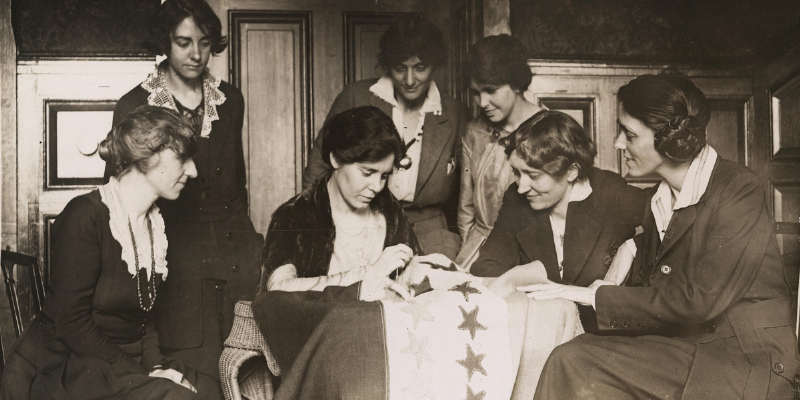
As we reflect on the 102nd anniversary of the Women’s Bureau, we recognize that this past year has been a mixed bag of both unquestionable progress and devastating setbacks. However, as history has demonstrated time and time again, progress is rarely perfectly linear, and hard-won gains in the arenas of equality and justice must often be defended against interests who construe progress as a zero-sum game with clear winners and losers. The present moment calls to mind a common organizing principle for many of the suffrage centennial commemorations that took place all around the country in 2020: “Hard won, not done.”
In 1920, the same year that the Women’s Bureau was founded, the 19th amendment gave women the right to vote, giving rise to burgeoning optimism that suffrage would be a gateway to more economic and individual freedoms. In developments that can hardly be deemed coincidental, the same period witnessed a proliferation of state legislation to restrict the type of clothing women wore, how much skin they were allowed to show, and how tall their heels were allowed to be.
The same rings true today – even as women’s personal autonomy is once more at risk, the country has seen two more states – Delaware and Maryland – ratify bills to provide paid family and medical leave, a policy that is essential for working women. Now 11 states and the District of Columbia guarantee paid leave. And in this same year, women, as a whole, have largely climbed back from the catastrophic employment losses brought on by COVID-19, buoyed by months of strong economic growth in the country. Not to mention the large boost from the American Rescue Plan, Bipartisan Infrastructure Law, and several other equity-minded policies enacted by the Biden-Harris administration that expanded family and community resources to bolster a recovering economy.
However, the employment story is more mixed for women of color, who faced the largest employment losses in 2020, and who, as in previous economic fallouts, continue to lag all other groups in recovering. The same is true in terms of wages: Women continue to be paid less than men and on average, women make only 83% of what men make. Among Black women, this figure is 64% and among Hispanic women it is 57%. These persistent disparities are due in large part to the disproportionate concentration of women in low-paying jobs, the devaluation of work done by women, and by unexplained factors that the literature often attributes – at least partially – to unconscious biases and outright discrimination.
But progress is being made.
As we reflect on the decades of advancement working women have made, we also recognize that quantum leaps in one arena can be muted by persistent inequities in others. There are setbacks, and we still have battles to fight, but we are heartened by the steadfast resolve of our fellow travelers on this journey. Now, as then, gender equity advocates here and abroad are undeterred in our quest to bend the arc of history ever closer to justice.
As we look ahead to new horizons, we mark the eve of our 102nd birthday with a declaration of commitment to walking in lockstep with you, our sisters (and brothers)-in-arms, celebrating our collective victories, of course, but also never shrinking from good trouble. Onward to a day when the most egregious forms of gender and racial inequality have been relegated to the annals of history. In the meantime, we remain, as ever, the federal government’s staunchest allies and most vocal champions for working women.
Wendy Chun-Hoon is the director of the U.S. Department of Labor’s Women’s Bureau. Follow the Women’s Bureau on Twitter at @WB_DOL.

 U.S. Department of Labor Blog
U.S. Department of Labor Blog